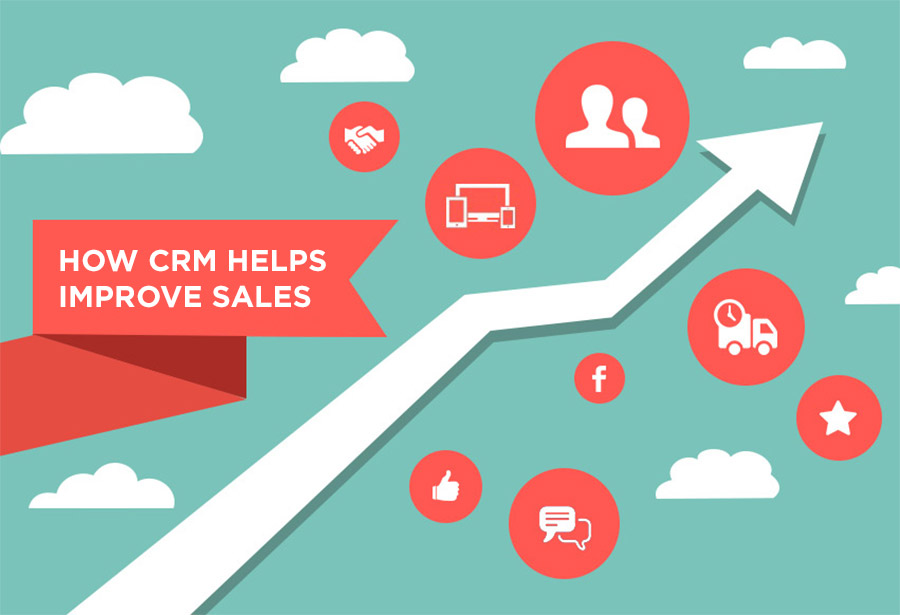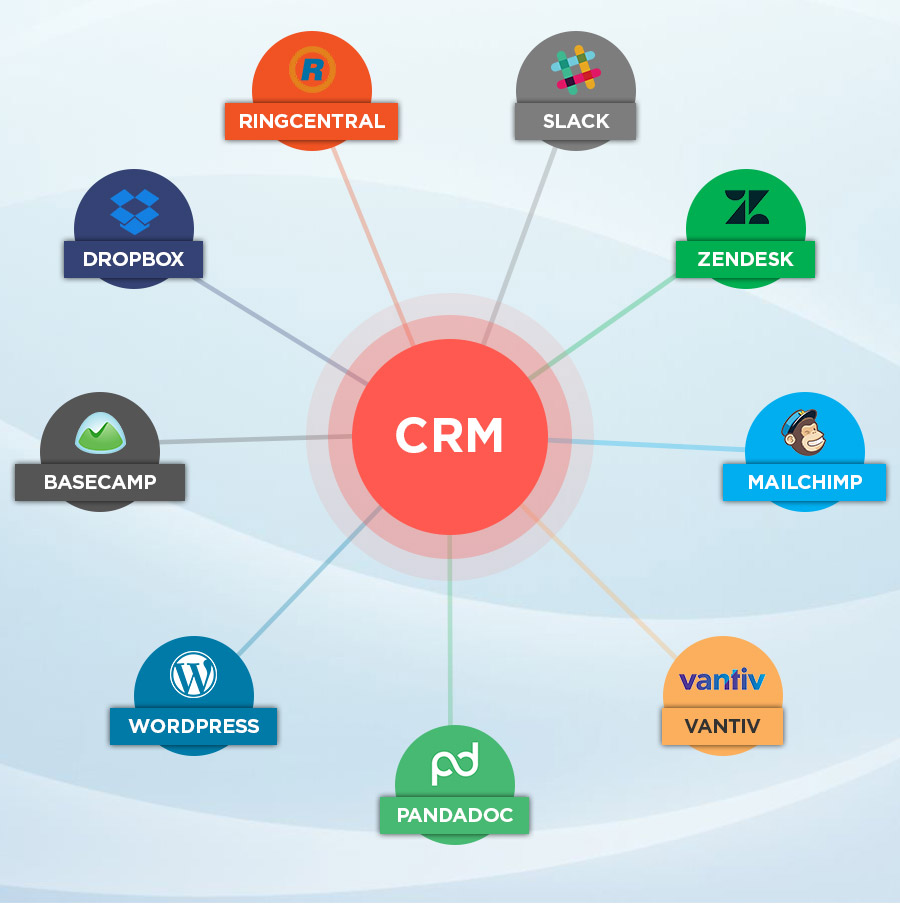How to implement CRM and avoid CRM implementation failures — that is the question ultimately every company has to answer before their business is knocked out of place by other, more tech-savvy companies.
Improved business performance is the main reason why everybody is talking about CRMs, BPMs, and other tools for automation of business processes, sales cycles in particular.
In this article, we share the best practices for CRM implementation. Dive into the details to empower your team with a perfect-fit CRM solution:
- Start with Business Analytic
- Select Open-Platform CRM
- Implement Scalable CRM Solutions
- Take Note of Security
- Carefully Choose Your CRM Implementation Team
- Consider Support and Maintenance
What is Customer Relationship Management?
There is little need to remind what CRM is. Yet, not everyone remembers that it is a powerful marketing and sales tool to boost revenue for your organization. This software is perfect for managing interactions with clients, understanding customer groups, and responding to their shifting demands.
Customer Relationship Management, as boring as it sounds, is actually the glue that connects businesses with their customers; and when employed correctly, drives the sales up.
The right CRM solution helps make the most of the communications between your reps and customers and generates a range of advantages leading your company to success.
Gaining Control of Customer Engagements
What if every customer could deal with your single most effective sales or service person?
Key Benefits of CRM Systems that Impact Your Bottom Line

Streamlined Communications
With a CRM, all your reps have access to any customer data. Thus, in case if the point of contact changes, another rep continues providing a high level of service.
Tracking customers across their journey, storing all the records, and providing reminders and templates are essentials for enhanced interactions. Moreover, a CRM also facilitates internal communications between employees.
Customers Segmentation
CRM enhances the process of targeting your audience. It allows you to filter data based on various segmentation criteria. With its help, you can create focus lists, run particular campaigns, and analyze lead pools.
Forecast Automation
Another valuable activity CRM can help you with is strategic planning based on key sales metrics. It makes it easier to estimate pipelines, define trends, and develop forecasts. It also shows you which of your lead generation strategies is the most profitable.
Improved Reporting and Analytical Data
Sales dashboards and reports that come with CRMs allow you to analyze a vast pile of data, structure it according to your preferences, and, eventually, make resourceful decisions. It saves time, elevates and evaluates personal performance.
Protection of Data Privacy
When storing your data in legacy on-premise apps or even in spreadsheets, you risk exposing all valuable information to the leakage. That results in monetary costs. Cloud-based CRMs provide significant protection by controlling access to sensitive customer data and business records.
Selecting and implementing a CRM platform that suits your business needs and doesn’t overcomplicate your internal procedures can make or break your entire company.
Taking into account all the nuances of sales teams operations in various industries, it’s not necessarily the most trivial task.
So how to implement a CRM system? And what do you need to search for when establishing a CRM strategy with the goal to enhance the overall performance of the sales department?
6 Best Practices for CRM Software Implementation
Let’s take a look at the best practices and core phases to consider when starting your CRM implementation project. Even if at first glance it might seem there’s nothing new in the process, implementing a CRM system requires a thorough approach to ensure the end solution has all capabilities to address initial goals.
1. Start with Business Analytics
A detailed analysis of business requirements is one of the CRM implementation success factors. Make sure to put all the desired functionality on paper before proceeding with the actual implementation. The specification can be prepared by your system analysts or by business analysts employed by your development partner.
Look for an experienced team with senior business analysts who follow the time-proven procedure of identifying all existing pain points in your business processes and come up with the most optimal CRM implementation plan.
It’s not a rare case when a client comes with a specific request based on his own analysis. However, a qualified team does go the extra mile to review the client’s processes and make sure they are not missing any opportunities to optimize these processes instead of merely “migrating” them over onto a CRM platform.
2. Select Open-Platform CRMs
The chances are you already use multiple sales tools, each handling a certain aspect of the sales agent-client interaction. Obviously, getting rid of all the data accumulated inside these tools is not something you will embrace gladly. Therefore, selecting a CRM that can integrate with your existing solutions is one the core phases to focus on when working on the implementation.

The CRM should provide options for either migrating all data from the currently deployed sales tools or point-blank integrating with them and visualizing external data in its dashboards.
Learn more: CRM Migration Checklist
In the former scenario, there is no need to keep maintaining a certain sales tool that feeds the data, once all data has been successfully migrated to the new CRM.
The latter use case means that you can keep running your set of tools as you see fit: all data from them will become available in the new CRM automatically.
Read a Case Study: CRM migration to replace several siloed solutions
It’s great news if the CRM of your choice also runs a marketplace or some kind of an “app store”. This is where third-party developers can place their extensions and add-ons that extend the functionality of the CRM by integrating it with other tools and products.
3. Implement Scalable CRM Solutions
Increased sales are the obvious outcome of deploying a new CRM. Implementation of a CRM that offers scalable architecture and can grow together with your customer base is a good decision. Besides, automating your marketing and customer service processes is another way a CRM platform can show off its scalability.
Automating all these areas of your business will directly reflect on your company’s bottom line.
4. Take Note of Security
It goes without saying the CRM selected for implementation must provide advanced security. After all, it will hold your customer data along with your legal paperwork, invoices, etc. Modern CRMs all provide data encryption, support of secure protocols (e.g. https), and other industry-standard security measures.
However, you should seriously consider security even before going live — at the implementation and deployment phases — and request that two environments are used: staging and live. Staging is for development and testing, while live or production is, well, for the actual work with your customers.

All CRMs provide several layers of access with restricted access rights depending on the role of the user. You should grant the access rights very consciously. For instance, only admin or owner-type users should be able to import all customer data from the CRM, not a regular salesperson, for obvious reasons. Financial reports should be available only to your accounting stuff, etc.
5. Carefully Choose Your CRM Implementation Team
Knowing who will be working on your CRM software implementation is another huge aspect of streamlining your sales processes. Often times, the company that produces a CRM also offers customization and integration services.
You can try and implement the selected CRM by means of your own internal team. However, working with a development partner may result in the reduction of CRM system implementation cost and overall better quality/price ratio. Many CRM systems require certification that presupposes deep knowledge of CRM architecture, etc.
It’s a good sign if the team you are considering has experience of developing some custom add-ons or plug-ins for a CRM. In order to do so, the software development companies usually undergo a complex certification process with the CRM issuer.
Working with a development partner, certified with the CRM you are considering, means you can get practically any level of CRM customization you need.
The delivery stage should include rigorous testing of all use-case scenarios for all user roles of the system. Our team goes through a complete workflow of a particular user type in order to verify all functionality and find any experiences that need fine-tuning — such as inadequate wording, unexpected transitions, and other confusing moments.
6. Consider Support and Maintenance
It’s one thing to learn how to implement a CRM platform; it’s quite another to support it going forward. Modern CRM systems issue regular updates that enhance functionality and address security issues. It’s vital to work with a partner who can offer ongoing maintenance services to update your CRM instance on a regular basis.
Our team provides extensive training sessions to all users of a CRM: from admins to regular employees. All of them are recorded, so that you can refer to them later as necessary, for instance when hiring new staff.
Velvetech Recommends Creatio CRM Implementation
Our preferred choice for CRM implementation is Creatio — a well-known CRM that offers automation of sales, marketing, and customer service processes.

Flexible & Open-Ended
Creatio provides a wide array of integration options. Besides API integration, the CRM also features its own marketplace with add-ons and plugins that basically extend the functionality of other third-party solutions into Creatio.
A good example is document management functionality offered right inside the CRM through a PandaDoc plugin, developed by Velvetech for Creatio. The plug-in is available among other extensions on the platform’s own marketplace.
Creatio is also flexible in a way that it allows you to continue working with current tools if you are not ready to give them up for some reason. All the data from your sales tools will be pulled via API calls into the CRM so that you can build reports, review the stats on the CRM dashboard, and perform other basic data manipulation operations.
Secure
Creatio delivers top-level security and privacy that meet or exceed what is achievable with on-premises solutions. Creatio applications are hosted at the professionally equipped data centers. Availability and security of confidential data are ensured at multiple levels:
- Physical Security
- Connection Security
- Network Security
- Application-Level Security
- External Security Controls
- Security Policies
Creatio ensures data protection from unauthorized access and multilevel security. Therefore, Creatio platform ensures an exceptional level of application security and stability.
Time-Tested
Velvetech has a team of experts certified with Creatio, who can perform CRM implementation projects of any complexity. The advanced certification level of our experts allows us to customize the CRM in every possible way and integrate it with any third-party solutions.
Velvetech also develops new “applications”, or rather add-ons and plug-ins, for Creatio that help consolidate functionality from separate stand-alone solutions into the Creatio CRM.
Gaining Control of Customer Engagements
What if every customer could deal with your single most effective sales or service person?
Final Thoughts on CRM Implementation
CRM implementation is a process that requires a lot of effort, resources, and expertise. However, you can achieve considerable improvements when adopting this software and following the best practices listed above.
In some cases, CRM deployment can still leave you with a nerve-wracking experience. As a CRM consultant, Velvetech is ready to support you with a consistent CRM implementation plan and detailed guidance. Get in touch with us to boost your sales and increase business efficiency.










